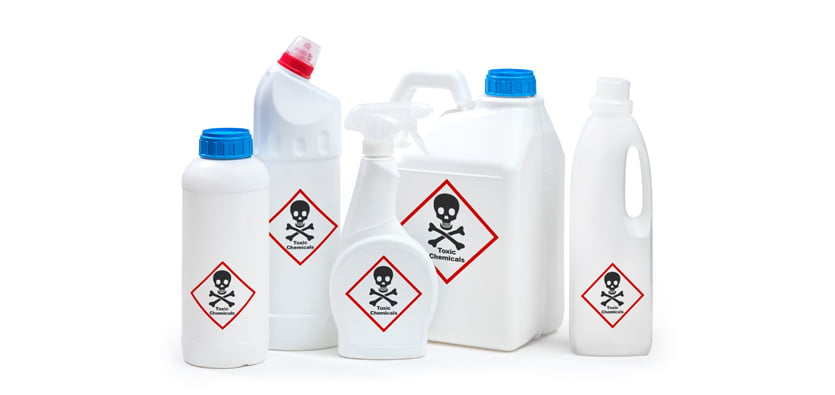
Mineral spirits, those versatile solvents found in many workshops and households, are more than just paint thinners. With their ability to dissolve oils and clean effectively, mineral spirits play a crucial role as industrial cleaners for various industries. Their clear, colourless appearance and mild odour make them user-friendly, but there’s a fascinating science behind their effectiveness.
Let’s explore the molecular makeup of mineral spirits and see how they interact with other substances.
What Are Mineral Spirits?
Mineral spirits, or white spirits, are petroleum-derived solvents commonly used for thinning oil-based paints and cleaning brushes. They are a clear, colourless liquid with a mild odour, making them a popular choice for many applications. But what exactly are mineral spirits made of, and how do they work?
Mineral spirits are composed of hydrocarbons, molecules of hydrogen and carbon atoms. These hydrocarbons are derived from crude oil through a refining process. The exact composition can vary, but they typically contain a mix of aliphatic (straight-chain) and aromatic (ring-shaped) hydrocarbons.
This blend gives mineral spirits effective solvent properties, allowing them to dissolve oils, resins, and other substances.
How Do Mineral Spirits Work?
The effectiveness of mineral spirits as a solvent lies in their molecular structure. The hydrocarbons in mineral spirits have nonpolar characteristics, meaning they can easily dissolve other nonpolar substances like oils and greases.
This makes them ideal for various cleaning and thinning tasks. But let’s dive deeper into the science behind their action.
Solvent Action Explained
When mineral spirits are applied to a surface covered in oil-based paint, the nonpolar molecules of the mineral spirits interact with the nonpolar molecules of the paint. This interaction breaks the bonds that hold the paint molecules together, effectively dissolving the paint.
This process is similar to how soap removes grease: it breaks the bonds between grease molecules and allows them to be washed away.
Uses Of Mineral Spirits
Mineral spirits have a wide range of uses in both professional and household settings. Here are some typical applications:
Paint Thinning And Removal
One of the primary uses of mineral spirits is to thin oil-based paints. Adding mineral spirits to paint can achieve a smoother, more workable consistency.
Additionally, mineral spirits effectively remove paint from brushes, rollers, and other painting tools, extending their lifespan and maintaining performance.
Cleaning And Degreasing
They are excellent for cleaning and degreasing surfaces. They can remove stubborn stains and residues from various materials, including metal, wood, and concrete. This makes them a go-to solvent for many industrial cleaning tasks.
Household Uses
The household can use mineral spirits to clean and maintain tools, remove adhesive residues, and even treat stains on fabrics and carpets. However, they are flammable and can be harmful if inhaled or ingested.
Therefore, it’s essential to use them cautiously and follow safety guidelines.
Safety Considerations
While mineral spirits are highly effective solvents, they also come with certain risks. Understanding these risks and taking appropriate safety measures when using mineral spirits is crucial.
Handling And Storage
Mineral spirits should be handled with care. Always use them in well-ventilated areas to avoid inhaling fumes, and wear protective gloves to prevent skin contact. Store mineral spirits in a cool, dry place, away from heat sources and open flames, as they are highly flammable.
Environmental Impact
Improper disposal of mineral spirits can have significant environmental consequences. Never pour mineral spirits down the drain or into the soil. Instead, dispose of them according to local hazardous waste regulations. Many communities have designated facilities for safely disposing solvents and other hazardous materials.
How To Choose The Right Solvent
Choosing the right solvent depends on the task at hand and personal preferences. Here are some factors to consider when selecting a solvent:
Application
Consider the specific task for which you need the solvent. Are you thinning paint, cleaning tools, or degreasing surfaces? Different solvents have varying strengths and are suited to different applications.
Safety And Environmental Impact
Evaluate the safety and environmental impact of the solvent. If you’re concerned about fumes and toxicity, water-based or citrus-based solvents may be a better choice. Always follow safety guidelines and dispose of solvents responsibly.
Performance And Cost
Finally, consider the performance and cost of the solvent. Mineral spirits are widely available and relatively affordable, making them popular for many users. However, investing in a more specific solvent may yield better results for specialized tasks.
About Us
Sunrise Industrial Cleaners has been a trusted name in the cleaning solutions industry for over two decades. We provide a wide range of industrial cleaning products, including solvents like mineral spirits. Our dedication to research and development has allowed us to continually improve our products, ensuring they meet the highest effectiveness and safety standards.
For more information about our products and services, contact our team today.
